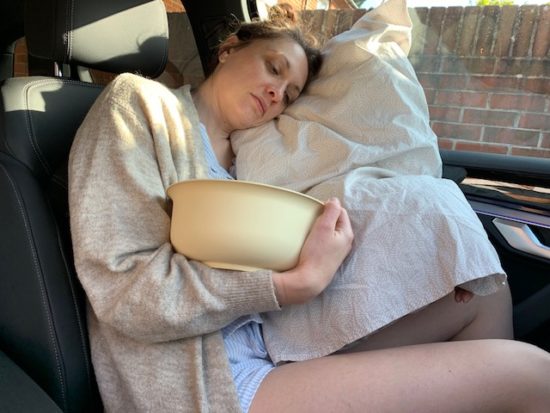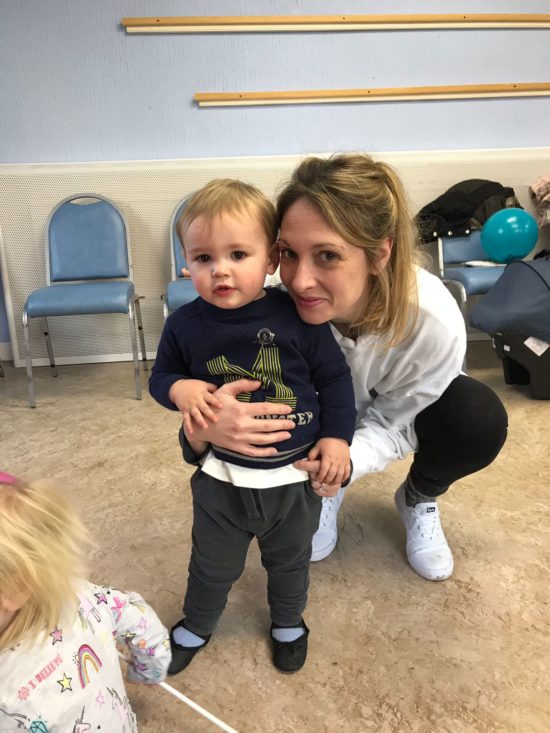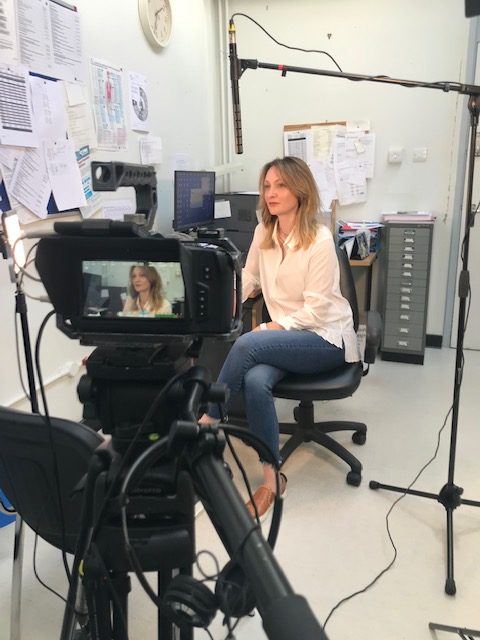Charlotte Howden suffered with such severe sickness during her pregnancy, that she would even vomit when she swallowed her own saliva. She now campaigns for more awareness about the debilitating condition hyperemesis gravidarum, and what those affected can do.
Hyperemesis can be characterised as severe nausea and vomiting in pregnancy. The severity is so debilitating that women are simply unable to function as normal and life begins to fall apart around them. I suffered from HG in 2015 when I fell pregnant with my only child, Henry.
Unsurprisingly many people still perceive hyperemesis as just “really bad” morning sickness or have simply not heard of it at all. The condition is misunderstood by not just the public but also health professionals.

Whilst both morning sickness (which should be called pregnancy sickness as the term is outdated) and hyperemesis include vomiting and nausea, they are not on the same spectrum at all.
With hyperemesis, sufferers can experience other symptoms such as excessive saliva production, increased sense of smell, hair loss, low blood pressure, rotting teeth, vomiting blood, severe dehydration, crippling headaches and weight loss in pregnancy.
Physically, HG for me felt like I was dying. It is the simplest and most accurate description. This is because it is impossible for a human being to function without food and water. Hyperemesis is on a spectrum, but even a milder version is destructive.

For me, I was being sick up to 30 times a day with no relief and my nausea was 24/7 a week. I very quickly fell into a cycle of needing to eat something, and then regretting it for the next 24 hours as my body would get rid of it.
My only saving grace was that I was still able to drink water. However, at around nine weeks pregnant that suddenly stopped and I was now even vomiting my own saliva (which I was producing an excessive amount of, so I would literally be sick every time I swallowed, or I would choke).
I was bed bound for 10 consistent weeks, unable to shower as I didn’t have the energy to stand up, I couldn’t brush my teeth because the taste of the toothpaste made me sick. I lost more than 5% of my body weight and was surviving on the minimum.
I was unable to work, watch TV or look at my phone
I was unable to work, watch TV, look at my phone or hold a conversation with my husband because every movement, every smell and every interaction made me sick.
Finally, at 20 weeks pregnant I was offered medication that allowed me to return back to some normality. I continued to take this medication until 36 weeks pregnant, when I felt able to reduce my dosage, until then I was petrified that it would return.
As hyperemesis is on a scale, some women might find that they can find “safe foods” that they can keep down which will prevent them from losing too much weight or from becoming dehydrated, but this isn’t enough to alleviate the symptoms, it is a work around – and of course at any time, those foods can stop being safe.
In my case as I was diagnosed with severe hyperemesis gravidarum, the only thing that was going to help was anti sickness medication and rehydration in hospital (often overnight) via an IV Drip.
First, if you only take away one thing from this article, please know that HG is not morning sickness.
Please know that HG is not morning sickness
That will help a sufferer, as women often experience other pregnant women comparing their pregnancy sickness with their hyperemesis or suggesting things like taking ginger. Home remedies and sickness bands are unlikely to cure a genetic condition.
Second, anti-sickness medication IS safe to take in pregnancy. The legacy of the Thalidomide scandal is still with us today, but that was 60 years ago.

Science and research and data into current anti-sickness medications has come a long way.
I would not have survived my pregnancy and would very likely had to terminate if it wasn’t for the medication that I was prescribed.
Some doctors aren’t fully up to date about medication for sufferers and sadly some evidence suggest 1000 women a year in the UK alone terminate because of HG or in part due to the condition. Some of these women talk about how their doctors said that there was no medication they could take – which is simply not true.
Last, women with HG aren’t making this up. No one wants to be this sick in pregnancy, we aren’t worried about putting on weight and it is not all in our heads.
If you think that your sickness and nausea is not usual, you must go and see your GP as soon as possible. They should be able to determine whether you are going to need intervention and possibly medication to help you. Early intervention is critical to better outcomes for both women and their babies.

If you do not believe that you are getting the help you need, please reach out to the charity, Pregnancy Sickness Support
Their website has a lot of useful information and they also have a helpline and online chat function so you can speak to someone who will be able to advise you and support you.
If you want to see and hear other women’s stories, then you can also watch my Documentary Sick – The Battle Against HG. Sick is the world’s first documentary about hyperemesis and was released in 2020.
You can find details on how to watch on my website www.thesickfilm.co.uk along with links to the podcast The Hyperemesis Files, which has over 15 hours of women’s stories and experiences.
The charity Pregnancy Sickness Support has information on its website about HG, as well as a helpline providing information and guidance on treatments and coping strategies. There is also a forum where you can talk to other sufferers and survivors.
Other useful resources are the NHS, and the Bumps website can tell you which medicines are safe for use in pregnancy.
You can find lots of Charlotte’s video blogs on Instagram @the_sick_film, she’s also on Facebook @thesickfilmHG. She also has a podcast for women who are suffering or who have suffered from HG which you can download here hyperemesisfiles.buzzsprout.com.